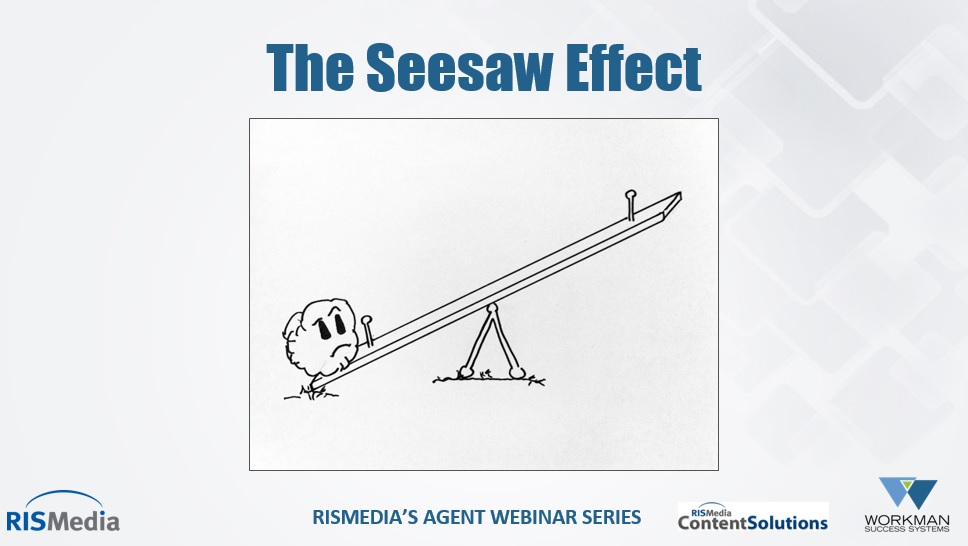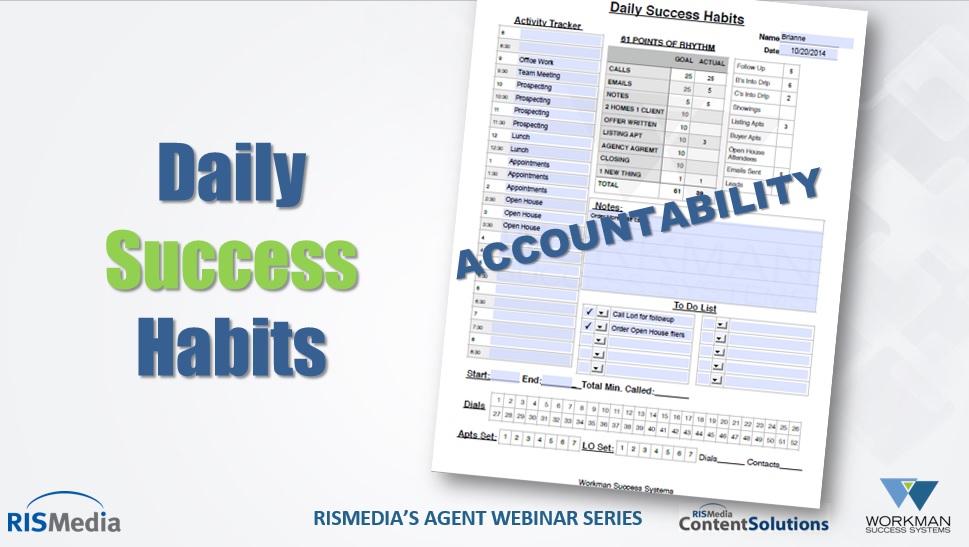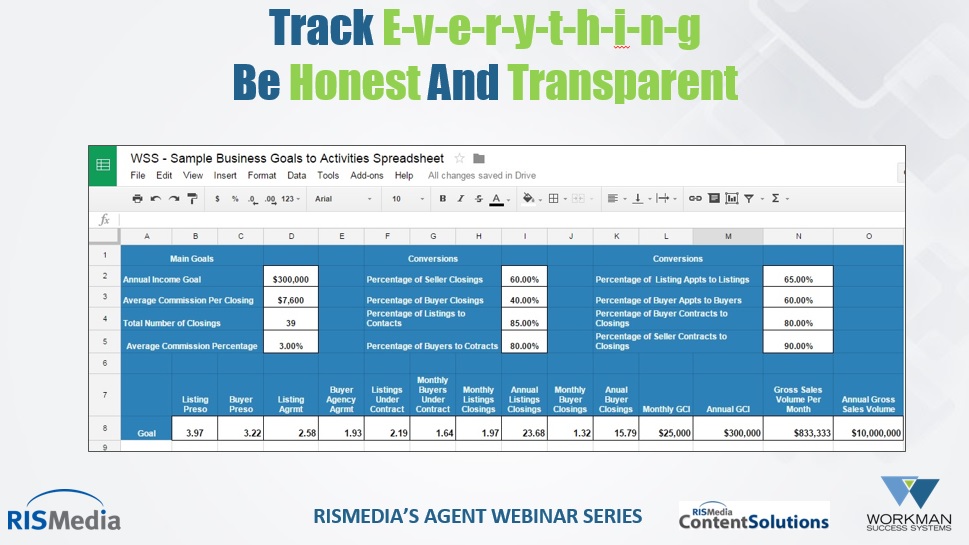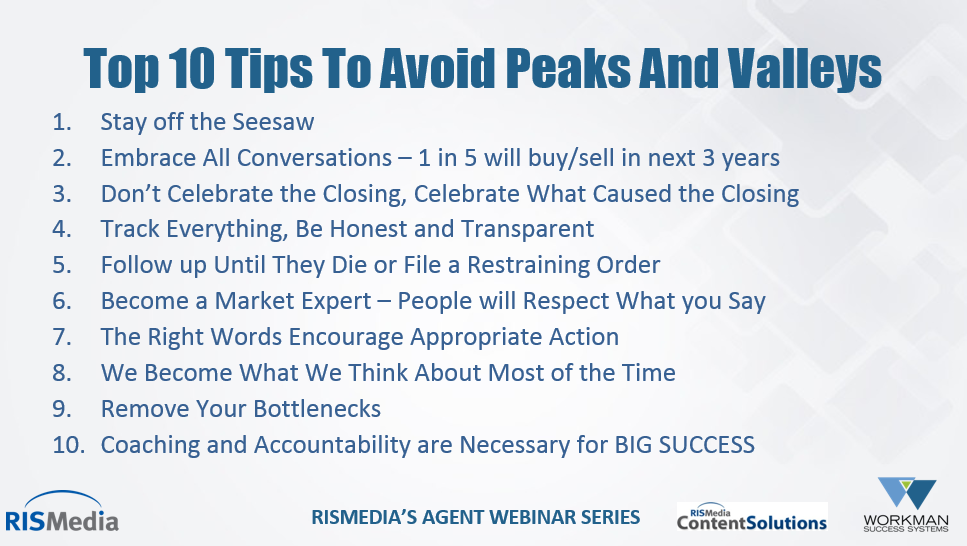According to Cleve Gaddis, most real estate agents are doing it all wrong. To count yourself among the top producers of the industry, you must upend the traditional view of the annual calendar and approach your business with the same level of gusto each month of the year.
In RISMedia’s latest webinar, “Goodbye Peaks and Valleys, Hello Year-Round Success,” real estate superstar Cleve Gaddis of Gaddis Partners, RE/MAX Center shared with the audience exactly how he has managed to lead one of the top RE/MAX teams in Georgia for 10 consecutive years with $40 million in annual sales volume. Part of RISMedia’s monthly Agent Webinar Series, the broadcast was moderated by Verl Workman of Workman Success Systems, and sponsored by RISMedia’s Content Solutions.
Workman got right to heart of the matter by asking Gaddis exactly what an agent has to do to eliminate and avoid the common peaks and valleys of the real estate business during the course of the calendar year. Gaddis pointed to the seesaw effect.
“Most real estate agents work on this seesaw,” he explained. “Business is either waaaay up or waaaay down. They generally don’t take the steps to level out their business, and when you don’t do that, you start borrowing from the good times to support the lean times.”
Gaddis’ approach to year-round success flies in the face of the traditional real estate mindset—that sales peak in spring and languish in winter. On the contrary, says Gaddis, real estate sales happen year-round—you just have to be the one who gets the business. And to do that, says Gaddis, agents must start building a healthy pipeline of future business by “embracing all conversations.”
“One in every five people you see out there in the world every day—whether it’s at Starbucks, McDonalds, or your kid’s school—will make a change in their housing over the next three years,” explained Gaddis. “I have a hard time telling if someone’s a good or bad prospect just by looking at them. When I remind myself that one in every five will change their housing within three years, I start to value every conversation I have, even if it’s two years before someone is ready to sell. You won’t build your pipeline unless you engage every, single conversation.”
Agents must also consistently engage in conversation with their current and past spheres. He and his team make the art of conversation a breeze by sticking to the FORD technique: Family, Occupation, Recreation, Dreams. Sticking to these topics in this order, enables you to have a conversation with anyone. “Sometimes, in order to reconnect, you just need to call and talk about their favorite subject—which is not you and your real estate business. Their favorite subject is them.”
Of course, conversations must also include relevant, local market information that will encourage buyers and sellers to transact at any time of the year—not just in the so-called peak seasons. “Every day we need to stay on top of what’s happening in the market,” said Gaddis. “That way you always have something to talk about. I look at national stories from sources like RISMedia and I then take that information and figure out how it applies in our particular market. I know that I am more of an expert in real estate than almost everyone else my prospect comes into contact with. You have to use your knowledge and market statistics to give people the inspiration to move forward on their real estate transaction.”
Engaging in conversation is just one of many activities that agents must set goals for, track and be held accountable to each day, no matter what, stressed Gaddis. It’s what he calls the 61 Points of Rhythm, or a daily definition of success. With this method, agents receive points for various daily activities—sending out emails, making calls, mailing handwritten notes, showing homes, setting appointments, etc.—with the goal of accumulating 61 points by day’s end.
“Agents get really excited about a big month of closings, but the problem is they’re celebrating the wrong thing,” explained Gaddis. “The closings are a result of good activities that took place before the closing. If we achieve our activity milestones on a daily, weekly and monthly basis, the results will follow. My activities in March are what led to my improved closings in May. You don’t always get the benefit of what you’re doing today by the end of the week. When you take on a long-term perspective, everything will change and every month you’ll be getting 4 – 5 transactions from someone you might’ve talked to six months ago.”
According to Gaddis determining how many of which activity must be done at what frequency, is a math equation determined by setting your income goal for the year. Your income goal will then break down into the number of daily, weekly and monthly activities that must take place in order to reach that goal. Gaddis shared a spreadsheet with attendees (download it for free here) that automatically calculates an activity game plan for reaching your income goal.
Gaddis closed the webinar with his list of Top 10 Ways to Avoid Peaks and Valleys, and with a reminder to all: “Don’t celebrate the closing—celebrate what caused the closing.”
Watch the complete webinar here:
To download free copies of Cleve’s spreadsheets and worksheets, click here.

Maria Patterson is RISMedia's executive editor.














Awesome content!
Really like the point: “Don’t celebrate the closing—celebrate what caused the closing.” Far too often we don’t pay attention to the process… and the process is always what causes the results. Love this article. Thank you!